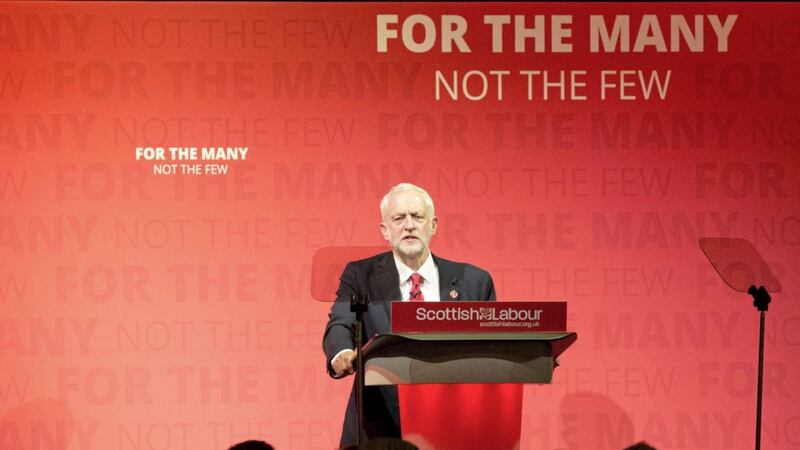We are living dangerous times, the politics of self advancement is winning, kindness in potential leaders is painted as weakness and children are considered legitimate targets, collateral damage in a twisted and increasingly cruel world.
I spent a few days last week in Manchester, a place badly hurt but unbroken by the most heinous of acts.
It is hard to report in an emotionally detached state from such events, bombing a pop concert full of excited children and their parents is as soft a target as you're ever likely to find.
The attack caused a brief pause in the election campaign as a mark of respect to the victims, but brief it was.
As of this week the relationship between Jeremy Corbyn and members of Sinn Féin and the IRA has formed countless stories in English papers which in the main pay little attention to Northern Ireland or its citizens.
The recent - and historic - assembly election warranted little more than a few paragraphs in some daily titles.
Corbyn and his shadow home secretary Diane Abbott have been asked numerous times about meetings and comments they made over 30 years ago with comparisons made about supporting terrorism then and the Manchester attack.
Corbyn, a man who has repeatedly said he opposes violence of any kind, met publicly with Gerry Adams at a time when the Sinn Féin leader was banned from entering Britain.
At the time of the much criticised meetings there had been numerous back-channel engagements involving various British administrations since the early 1970s.
Those very private meetings paved the way for the modern peace process, and while Tony Blair takes the glory for sealing the deal, that particular process started under a Conservative leader in John Major.
He started, but was unable to finish, a process which involved meetings between his officials and IRA members.
Much later Mo Mowlam went into Long Kesh and spoke with loyalist paramilitary leaders to convince them to lend support to the process.
She was much maligned for a meeting at a time when loyalists were still killing people on the streets of Northern Ireland, but her brave move worked and helped secure relative peace.
As someone who was born and lived through that time, growing up in an area that geographically suffered the highest death toll of the Troubles, I find this current political obsession with cherry picking elements of our past fairly insulting.
Theresa May's determination to pursue a hard Brexit is something that will impact on my children economically for years to come, and yet she didn't even feel the need to visit Northern Ireland on her tour of the devolved regions before triggering Article 50.
That Stormont was in political crisis didn't feature in her plans for an election at a time that advantaged her political ambitions but meant any chance to getting a working government in Northern Ireland was put on the back burner.
We live in a place where a land border means Brexit will have more of an impact on our lives than it ever will in Theresa May's home constituency of Maidenhead, and yet has featured only in the wider political debate as a stick to beat Jeremy Corbyn with.
And that use of our past is an insult to everyone who lived and lost through that time.
Either the British government is proud of the peace process that it played an active role in or not.
To attack the Labour leader for making an effort to understand the complexities of our situation before it was fashionable is dirty politics.
And to use the murder of men, women and little children in Manchester to political point score while conveniently ignoring the slaughter of civilians in Yemen by a UK and US armed Saudi Arabian regime, is the worst kind of dirty politics.
Jeremy Corbyn at the start of his Labour leadership appeared unelectable, his persona more than of a trade union leader or an eccentric history professor than a prime minister.
But he has grown into the role and his plans for a kinder Britain, one where there is a restored National Health Service, where pensioners are protected and people are paid a living wage sounds like a much better place to live than the every man – and woman - for themselves world that is the alternative offered by the Conservatives.








